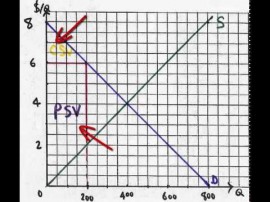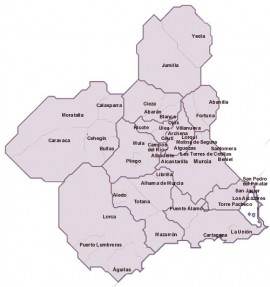- Fecha(s): 01/03/2018
- Lugar: Seminario del Departamento de Métodos Cuantitativos para la Economía y Empresa, UMU. Retransmisión en directo.
- Ponente: Konstantin Kholodilin. German Institute for Economic Research (Berlin)

The homeownership plays an important role in the wealth accumulation, given that the real estate represents over the half of the private households’ wealth. For more than a century, the governments in the market economies have striven to maximize the proportion of households who occupy their own dwellings. The homeowners are thought to be better…
- Fecha(s): 23/02/2018
- Lugar: Seminario del Departamento de Métodos Cuantitativos para la Economía y Empresa, UMU. Retransmisión en directo.
- Ponente: David Jiménez Gómez. Universidad de Alicante

ABSTRACT. Temptation and self-control evolved as single mechanism to make humans behave against their own self-interest. I follow a recent literature in Economics on the evolution of preferences, by modeling the evolution of self-control in a principal-agent framework. The principal can obtain the first best asymptotically by biasing the utility of the agent (from which…
- Fecha(s): 09/02/2018
- Lugar: Seminario de Fundamentos del Análisis Económico, B2/02
- Ponente: Francisco Alcalá Agulló

Abstract Which are the factors affecting the long run sustainability of GDP growth? This paper discusses a potentially important one that has been disregarded so far: the shift in advanced economies from quantity to quality growth. First, the paper lays down a simple model introducing the quality dimension of consumption into the IPAT analytical framework….
- Fecha(s): 19/01/2018
- Lugar: Seminario del Departamento de Economía Aplicada. Se retransmitirá en streaming.
- Ponente: Adolfo Meisel Roca

Abstract Los indicadores económicos demuestran que en Colombia hubo crecimiento económico de largo plazo durante el siglo XX. La estatura promedio de mujeres y hombres aumentó 0.05% y 0.06% anual, respectivamente, entre 1920 y 1990. Utilizando una base de datos única, los registros de certificados de antecedentes judiciales del antiguo Departamento Administrativo de Seguridad (DAS)…

Abstract We consider two families of strategy-proof social choice functions based on the majority principle: extended majority voting rules on the universal domain of preferences over two alternatives and generalized median voter schemes on the domain of single-peaked preferences over a finite and linearly ordered set of alternatives. We characterize their respective subclasses of obviously…
- Fecha(s): 12/01/2018
- Lugar: Seminario del Departamento de Métodos Cuantitativos para la Economía y Empresa, UMU. Retransmisión en directo.
- Ponente: Mª Pilar Martínez García. Universidad de Murcia

Abstract In this paper a dynamic model of economic growth, tourism and environment is studied. The model considers tourists in the economy as optimizing agents, interacting with domestic consumers. The number of tourists arriving in the country follows the Tourism Are Life-cycle model with a tourism carrying capacity dependent on environmental quality. Tourism hurts environment and abatement activities have…
- Fecha(s): 15/12/2017
- Lugar: Seminario B2/02, Fundamentos del Análisis Económico, Facultad de Economía y Empresa, U. Murcia
- Ponente: José Rueda Llano. Friedrich-Schiller University.

Abstract The appeal of the concept of perfectly competitive equilibrium (PCE), to describe the outcome of trade in competitive markets, relies on three assumptions: 1) in the absence of frictions, PCE is the result of the centralized or decentralized interaction of rational agents, 2) whenever the market is out of equilibrium, an adjustment process would…
- Fecha(s): 17/11/2017
- Lugar: Sala de Seminarios (Edificio Torretamarit), Universidad Miguel Hernández (Campus de Elche) . Se emitirá en directo o se grabará.
- Ponente: Fernando Bernstein (Fuqua School of Business, Duke University, USA)

Abstract We consider an online retailer facing heterogeneous customers with initially unknown product preferences. Customers are characterized by a diverse set of demographic and transactional attributes. The retailer can personalize the customers’ assortment offerings based on available profile information to maximize cumulative revenue. To that end, the retailer must estimate customer preferences by observing transaction…
- Fecha(s): 19/10/2017
- Lugar: Seminario del Departamento de Métodos Cuantitativos para la Economía y Empresa, UMU. Retransmisión en directo.
- Ponente: Matilde Lafuente Lechuga. Universidad de Murcia

En el análisis de la exclusión social, se ha constatado la importancia de la dimensión trabajo. La persistencia del paro, la temporalidad en el empleo o los bajos salarios, inciden de forma importante sobre los niveles de pobreza y exclusión social. En este trabajo se ha recopilado información sobre distintas variables relacionadas con el mercado…
- Fecha(s): 29/09/2017
- Lugar: Seminario del Departamento de Métodos Cuantitativos para la Economía y Empresa, UMU. Retransmisión en directo.
- Ponente: Mª de Mar Sánchez de la Vega. Universidad de Murcia

The aim of this work is to propose a statistical methodology in order to estimate the macromagnitud Gross Value Added per capita (GVApc) in the local geographical area. The procedure proposed consists of estimating a panel model which includes Griffith’s spatial filtering (1996, 2000) to capture the spatial dependence in the whole analyzed period. The…











